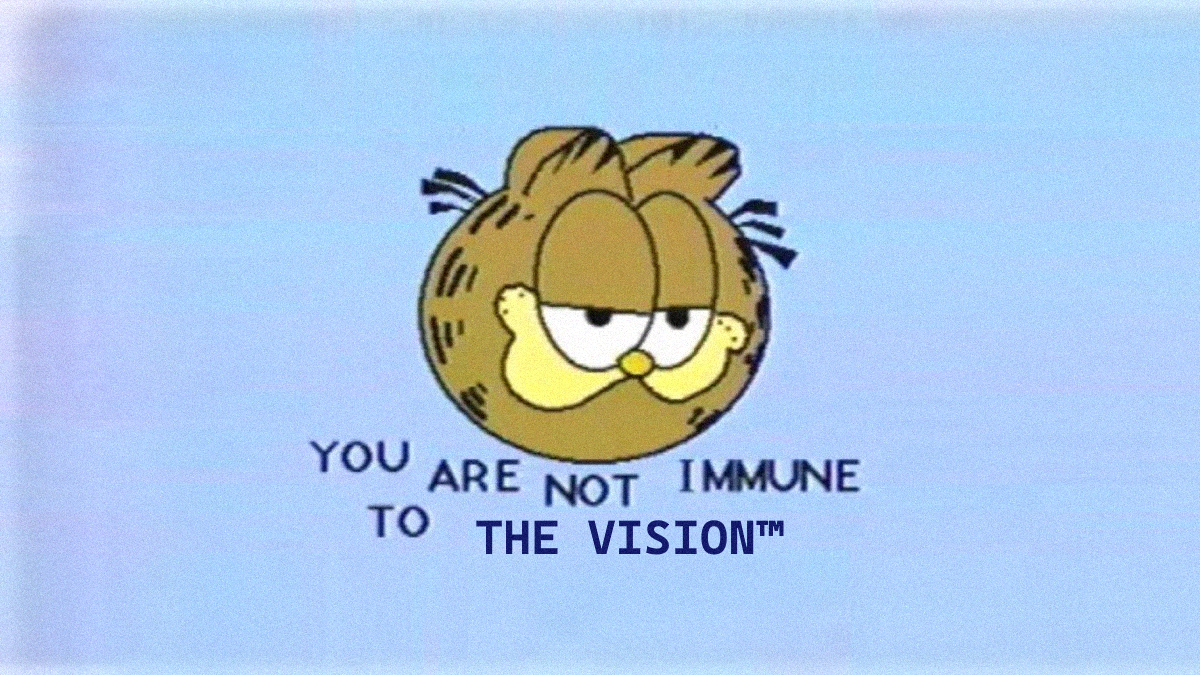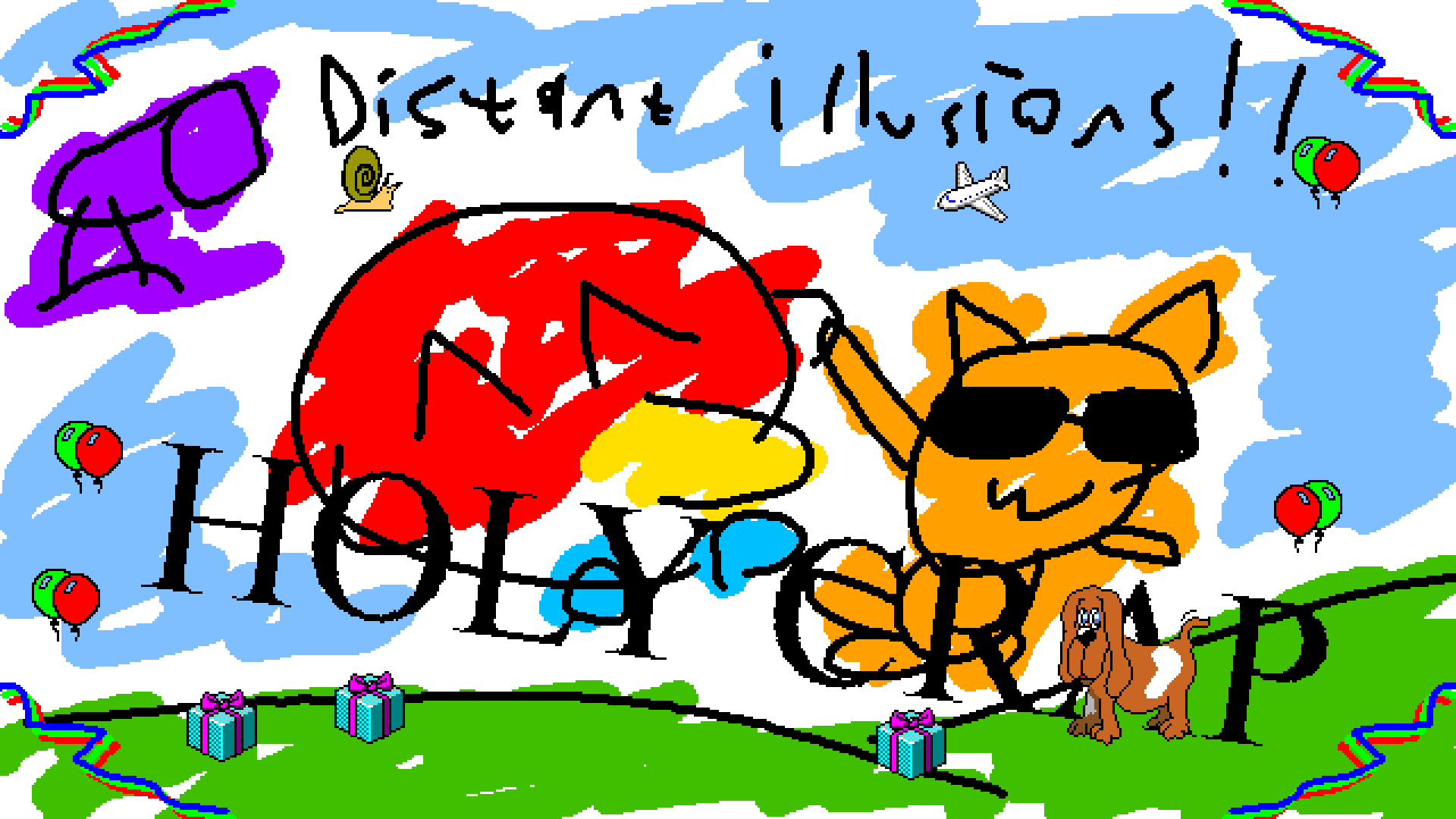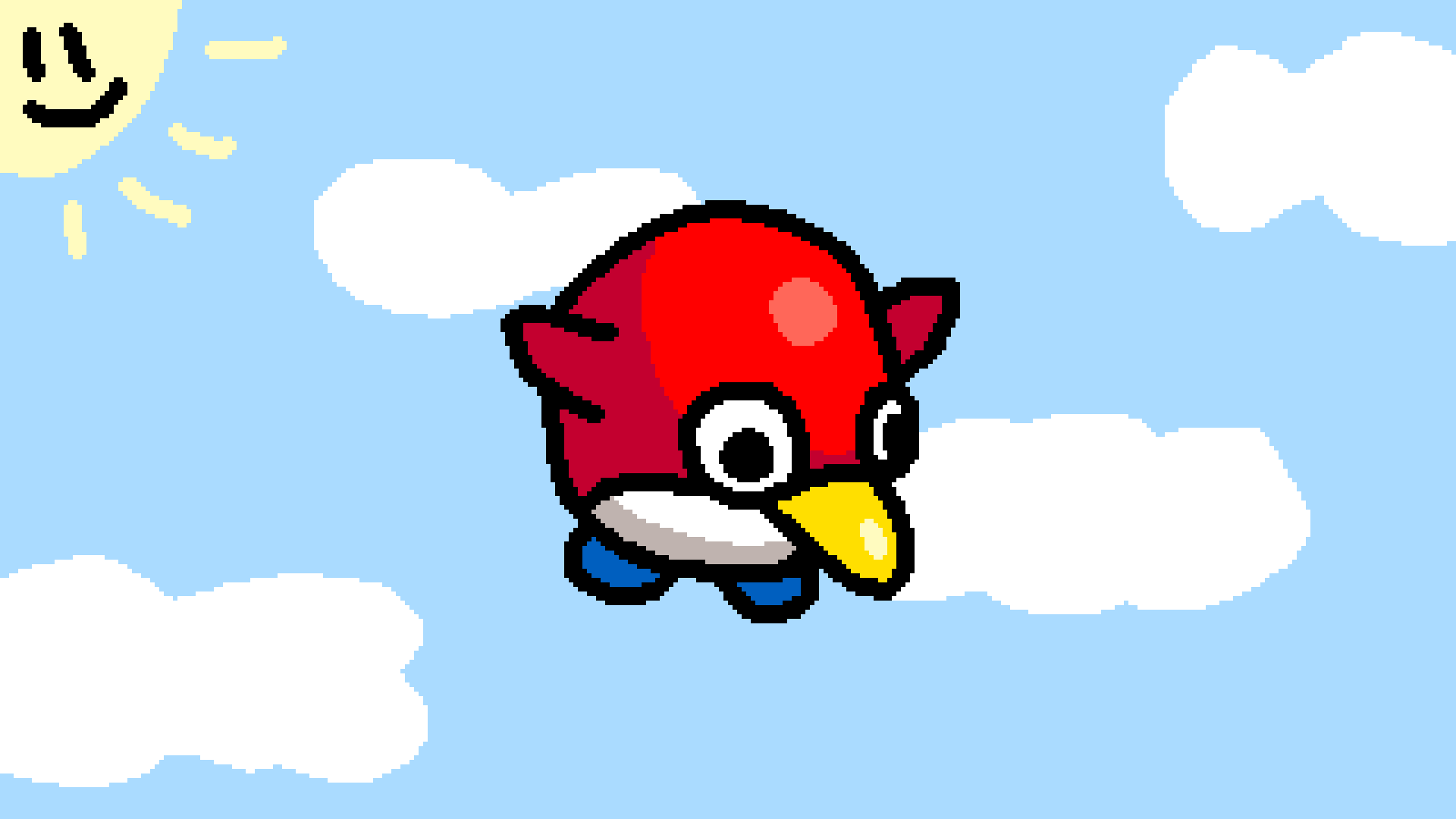
The Vision™
Mors's guide on how to get started on making games, and the biggest obstacle you'll face...
A question people have asked me a lot is, "Mors, how do I learn to make games?". I mean, not enough to annoy me or anything, but enough that I've decided to sit down and write all this.
See, I always struggled to give a satisfying answer to this question because I started making games in a very different time, under very different circumstances.
I started making games in the mid-2000s, when I was around eight years old. Tutorials weren't readily available for me, as I didn't speak English, and GameMaker was this obscure engine made by some Dutch professor to teach kids programming. All I had was me, the engine, and the website gamemaker.nl. That site had a bunch of example games made by some random schmucks with the engine, and many of them came with source files that I could tinker with. So, I had no choice but to figure out how they worked through trial and error.
A lot has changed since then. The tools are different, communities have shifted, and what worked for me won't work for others today. I mean, why rely on “trial and error” when you can easily find tutorials in pretty much any language?
So, I can't really help you much on where to begin exactly. But I can warn you about the biggest danger you will face in your journey, one that will try to kill you before you even start.
The Sickness
Every creative person is born with a sickness. Let's call it The Vision™.
The Vision™ is your magnum opus. A large metroidvania with 12 hours of content and roguelike elements. An MMORPG that will become the next World of Warcraft. A sprawling, genre-defining masterpiece that will change the face of gaming forever…
It lives rent-free in your head. You daydream about it constantly. You can see the gameplay loop, the art style, the opening cutscene, the reveal trailer, all in your head. It's so vivid that it feels like it already exists somewhere, and it's your duty to drag it into reality. It makes you think that anything else is a waste of your precious time. The Vision™ needs to be realized first.
It's also a parasite.
It feeds on your ambition. The more you feed it, the more demanding it becomes. It constantly whispers, “Psst, you you should add this thing too”. And you oblige. To the point where the project balloons into a clusterfuck of half-formed ideas that's way too bloated to be anything actually feasible. And at that point, it's way too late.
The worst part is that it's not just solo devs or hobbyists who fall victim to The Vision™. Even well-funded studios with years of experience aren't immune to this disease.
Here's a relatively recent example: A while ago, we saw the long awaited Minecraft-killer Hytale, getting canceled. If you read up on what the developers had to say about the game's cancellation, it should become clear that it essentially collapsed under the weight of its own ambition.
Over time, as our vision evolved and the genre matured around us, the bar kept rising. Our technical ambitions grew more complex, and even after a major reboot of the game engine, the team found that Hytale still wasn't as far along as it needed to be. It became clear we'd need a lot more time to get it to a place where it could support the ambitious vision for the game.
Oh dios mio.
We looked at reducing scope, adjusting timelines, and finding new angles to keep moving forward. But each of those options would have meant compromising on what made Hytale special in the first place. It wouldn't have been the game we set out to make. And it wouldn't have been the game you deserve.
Did I mention that the game was being funded and published by Riot Games?
Another such example is Star Citizen, a game that has been in development for over a decade. It started with grand ambitions of creating a universe with unparalleled detail and complexity. Yet, despite raising hundreds of millions in crowdfunding (and even becoming one of the most expensive games to make), it still is unfinished, with no clear release date in sight.
Even unimaginable amounts of money couldn't save these games from the hands of The Vision™. What makes you think you'd be immune to it?
The answer is that you're not. Nobody is. That's why you need to defeat it, by your own hands.
The Metabolism
So how do you even defeat The Vision™? By making a shitton of games.
Small games. Bad games. Dumb, ugly, broken games. I don't give a fuck. Make as many as you can.
Think of creativity not as divine inspiration, but as a biological process. A metabolism, so to speak. You consume ideas and inspirations constantly, but if you only consume, you will become constipated. Your head fills up with a toxic sludge of half-baked ideas and unrealized ambitions, and The Vision™ grows stronger in that filth.
To stay healthy, you must complete the cycle. You have to excrete. A finished game, any finished game, is a metabolic event. It's the processing of ideas into a tangible form. A tiny, shitty, broken game that you actually finish is a sign of a healthy creative system. A sprawling, perfect, perpetually unfinished “masterpiece” is a sign of disease.
This isn't just “practice”. It's a fundamental act of creative survival. Every finished project, no matter how small, is a victory. It's the proof that you're in control, and not a zombie controlled by The Vision™.
The Cure
So, you're convinced. You're ready to fight. How exactly, though? How exactly do you kill a monster that lives in your head?
First of all, you don't fight it head-on from the get-go. You starve it first, until it has no power over you.
See, The Vision™ feeds on grandeur. So, what you need to do is to think small, and then to think even smaller. Like, if your first idea is something like “a basic metroidvania”, you're still feeding the beast. Scale it back until it's something like “a square that moves left and right, and sometimes jumps”. Now it's perfect.
Essentially, you need to pick projects that you can make with full confidence.
Sharpen Your Blade
Alright, The Vision™ has been weakened. It's now time to attack it head-on. For that, though, you need a weapon, which is your ability to finish things. And you can only sharpen that weapon with discipline.
Set deadlines. Give yourself one week to finish your first game. If it's not done by then, give yourself one more. If it's still not done, abandon it and move on to something else you can finish in a week. The goal here is to keep the momentum going, and not to give The Vision™ any breathing room.
Some people feel like their time is wasted when they have to backtrack or abandon a project. This is wrong. Every dead end is a lesson learned, experience gained, an idea processed and excreted. Like, ask yourself, what did you learn? The answer is never going to be “nothing”.
Once those one-week games feel like a breeze, increase that time to two weeks. Three weeks. One month. A few months. You get the idea.
Now, if you're like me and lack the discipline to follow a schedule like this on your own, join game jams! Or at least do so once you feel comfortable enough. Game jams are a great way to grow as a game developer, as they teach you speed, scope, improvisation, collaboration, and problem-solving all at once, in a short amount of time. It's like a metabolic shock to the system, and it's incredibly healthy.
Don't get too stuck on which engine to use. The blade is your skill, not the brand of steel it's made from. Pick one that feels comfy and make things with it. You can always switch later if it doesn't fit your needs. The skills you gain from one engine will always be useful, even if you switch to another.
Face the World
The Vision™ thrives in the dark. It wants you to hide your work until it's “perfect”. You must drag your work into the light, warts and all.
Starting with your second game, release your games. Upload them on itch.io. Yes, it's embarrassing. Yes, your early games will be bad. But that's the point! Your goal is to become familiar with the process of creating, not to make actually good or polished games. That will come later naturally.
And don't think like “I don't want a bunch of shitty games released under my name”. I have dozens of awful Mario fangames released under my name on MFGG, and they're still up. And guess what? Nobody gives a shit. Your fear only feeds The Vision™ further.
When you do release your early games, make them free. You're not trying to build a business yet; you're building your skills. Putting a price tag on your work creates friction, and that doesn't help you grow.
What does help you grow is getting good and honest feedback. So try to get some eyes on your games. Ask your friends, join game development communities. Find people who won't just say “cool game” but will tell you what didn't work, what confused them, or what made them quit. It's going to be way harder for you to find those people if your game is on Steam and costs $15.
Once the game is out, close the book on it and move on. The temptation to endlessly tweak an old project is just The Vision™ in disguise. Fix critical bugs, but never add significant amounts of additional content. Take the feedback, take the lessons you've learned, and pour them into your next project, not the last one.
You Got This!
Don't be afraid of cloning other games at first. That's a great way of learning how to find your way around in your engine of choice. You can move on to more original ideas once you start knowing what you're doing. No, this isn't plagiarism; it's how every artist in history has learned.
Don't be afraid of experimenting later on too! Work in a variety of genres and styles. Mix and match ideas from many different places; don't limit yourself to a single source of inspiration throughout your journey. Heck, sometimes it's even better to deliberately do the opposite of what The Vision™ tells you. If your dream is to make a platformer, for example, why not experiment with a racing game for once? If you're most passionate about puzzle games, why not try making a shooter? The skills and insights you gain from one genre will always enrich your work in another!
Don't be too shy to work with other people. A big part of game development is knowing your boundaries and finding other creatives to help you with the shortcomings you have. You might be a programming wizard who can't draw for shit. That's fine! Just, you know, find an artist! You might be a brilliant designer who knows fuck all about music. Find a composer! Collaboration will not only result in a better game, but it will also teach you the now forgotten skill of “working in a team”.
Don't burn yourself out. This is a marathon, not a sprint, so pace yourself. If you're tired, step away and recharge. Burnout is another sickness creative people have to deal with, so be prepared for it once it happens. This one probably deserves a post of its own.
And lastly, also listen to other people's advice. I'm not the only game developer in existence. Heck, I'm not sure if I'd actually consider myself a good one! But I'm opinionated, I have stuff to say, and I'm saying it here. You should absolutely do additional research and also read up on other people's advice on how to get started with game development. As long as you avoid r/gamedev, and look for advice from people who have actually made and released games (which also excludes most gamedev YouTubers), you're good.
I was going to sneak in a Shia LaBeouf joke here too, but I feel like that'd make me look too old.
But...but...but…
“But what about [INSERT SUCCESSFUL INDIE GAME HERE]? They didn't start small!”
Are you sure? Look up the developer. You'll either find nothing, implying they either wiped their social media presence at some point, or come across a trail of smaller experiments, prototypes, fangames, and such. People don't just go from “learning how to make a game with Godot, teehee :3” to creating the next Balatro. If they do, they're the exception, not the rule. And you're not that guy.
Look, I've known hundreds of game developers. Yet I can only recall exactly one (1) person who found any success by pouring a decade into what was essentially one project. And by “success”, I mean he just launched a successful Kickstarter and seems to be doing well. That game still isn't out, yet he's closest to being the only person I know who might be an exception to this rule. Do you really want to gamble on those odds, spending ten years of your one short life chained to a single idea?
If the answer is yes, then by all means, ignore this post. Just know that once you fly too close to the sun, nobody will hear your fall.
The Finale
One day, you'll feel ready. You'll have a history of finished projects behind you. You'll understand the process, from start to finish. You'll know exactly what a new project requires and how to approach each part of it.
At that point, you're no longer chasing a distant illusion, but reaching for something real. Isn't that better?
...though, by then you'll probably have better ideas anyway.
2026 EDIT: I finally got a blog set up on my personal website, so I'm moving a lot of my more personal posts there. Go take a look!
Share this post
If you like what you just read, share it with your friends or on social media!
Stay in touch!
Sign up for our newsletter to get monthly exclusive newsletter posts, and more!
Comments
Join the discussion on our forum!Keep Reading

DI MONTHLY #10: T3H EPIC VIDJA GAMEZZZ
*holds up devkit* rawr xD

DI MONTHLY #8: Better Late Than Never
Good news, everyone!

DI MONTHLY #6: ALWAYS BUSY!!!
Me? Focusing on one project? Oh, don't be silly...
